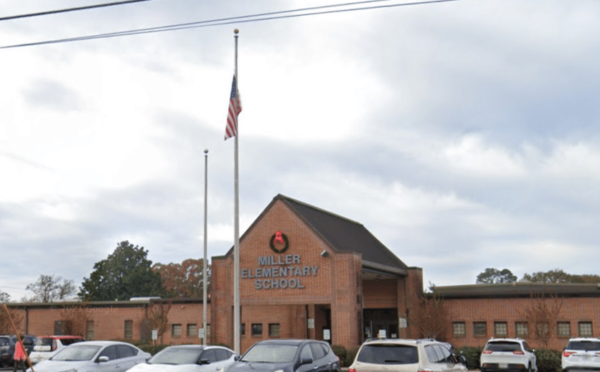
A former teacher in Houston County has been arrested following allegations of child molestation, according to information provided by the Houston County Sheriff’s Office, according to WMGT.
Joshua Gabriel Wilson , formerly a music teacher at Miller Elementary School located at 101 Pine Valley Dr, Warner Robins, GA 31088, was taken into custody on February 13, 2025, after a warrant was issued related to an incident that reportedly occurred in August 2023. Wilson was detained at the Houston County Board of Education in Perry and has since been held without bond.
Wilson made his first court appearance on February 14 at 4:51 p.m. Superior Court records confirm that bond has been denied, and he remains in custody as legal proceedings continue.
The Houston County School District addressed the situation with a public statement, emphasizing their commitment to student safety and their cooperation with law enforcement. They also clarified that Wilson has not been employed by the district or present on school grounds since the previous semester.
While the investigation is ongoing, no additional details have been shared at this time. Authorities are urging anyone with information related to the case to contact the Houston County Sheriff’s Office.

When a trusted teacher, is accused of sexual abuse, it leaves victims and their families grappling with numerous questions about their rights and legal options. To provide clarity on how survivors can seek accountability and compensation, attorney John Bey, who specializes in sexual abuse cases in Georgia, offers valuable guidance. In this interview, he explains how victims can navigate the legal system, pursue civil lawsuits, and hold both the abuser and negligent institutions responsible for their actions or failures.
Editor Darla Medina: Many people are grappling with the distressing nature of this case. Can you explain what legal options are available to victims of sexual abuse by a trusted authority figure, such as a teacher?
Attorney John Bey: Victims of sexual abuse, particularly by someone in a position of trust, have both criminal and civil legal avenues they can explore. While the criminal process focuses on punishing the perpetrator, the civil system provides a path for victims to seek compensation for the harm they’ve endured. This can include damages for emotional trauma, medical costs, therapy expenses, and more.
Medina: When it comes to civil lawsuits, are there scenarios where other parties beyond the abuser can be held accountable?
Bey: Absolutely. In some cases, institutions or employers—such as school districts—can be held responsible if they failed to take reasonable steps to prevent the abuse. For example, if there were prior complaints or warning signs about the individual and those concerns were ignored, the institution might be considered negligent. Civil lawsuits aim to address not just the actions of the abuser but also any systemic failures that allowed the abuse to occur.
Medina: What challenges do victims often face when coming forward, and how can the legal process help provide them with a sense of closure?
Bey: Coming forward is incredibly difficult for many victims due to fear, shame, or concerns about not being believed. However, the legal process can empower victims by holding abusers accountable and shining a spotlight on any systemic issues. Civil cases, in particular, allow victims to tell their stories and seek justice in a way that prioritizes their healing.
Medina: How important is it for victims to act quickly if they want to explore civil legal options?
Bey: Time is a critical factor. Georgia has statutes of limitations that dictate how long victims have to file a lawsuit. However, there are exceptions and nuances depending on the circumstances, especially for cases involving minors. It’s crucial for victims or their families to consult with an attorney as soon as possible to understand their rights and options.
Medina: For families who suspect abuse but don’t know where to start, what advice would you give?
Bey: My advice would be to prioritize the victim’s safety and well-being first. Seek professional support from counselors or advocacy organizations. Once they’re ready, consult an attorney experienced in these cases to assess potential legal action. It’s important to know that they don’t have to navigate this process alone.
Medina: Thank you for shedding light on these important legal rights and the steps victims can take to seek accountability.
Bey: Thank you, Darla. I hope this information empowers those affected to take the steps they need for justice and healing.
If you or a loved one has experienced sexual abuse by a trusted authority figure, you don’t have to face this journey alone. Our team is here to provide compassionate support and guide you through your legal options. Contact us today for a free consultation to discuss how we can help you seek the justice and compensation you deserve. Your voice matters, and we’re here to stand by your side every step of the way.
 info@legalherald.com
info@legalherald.com